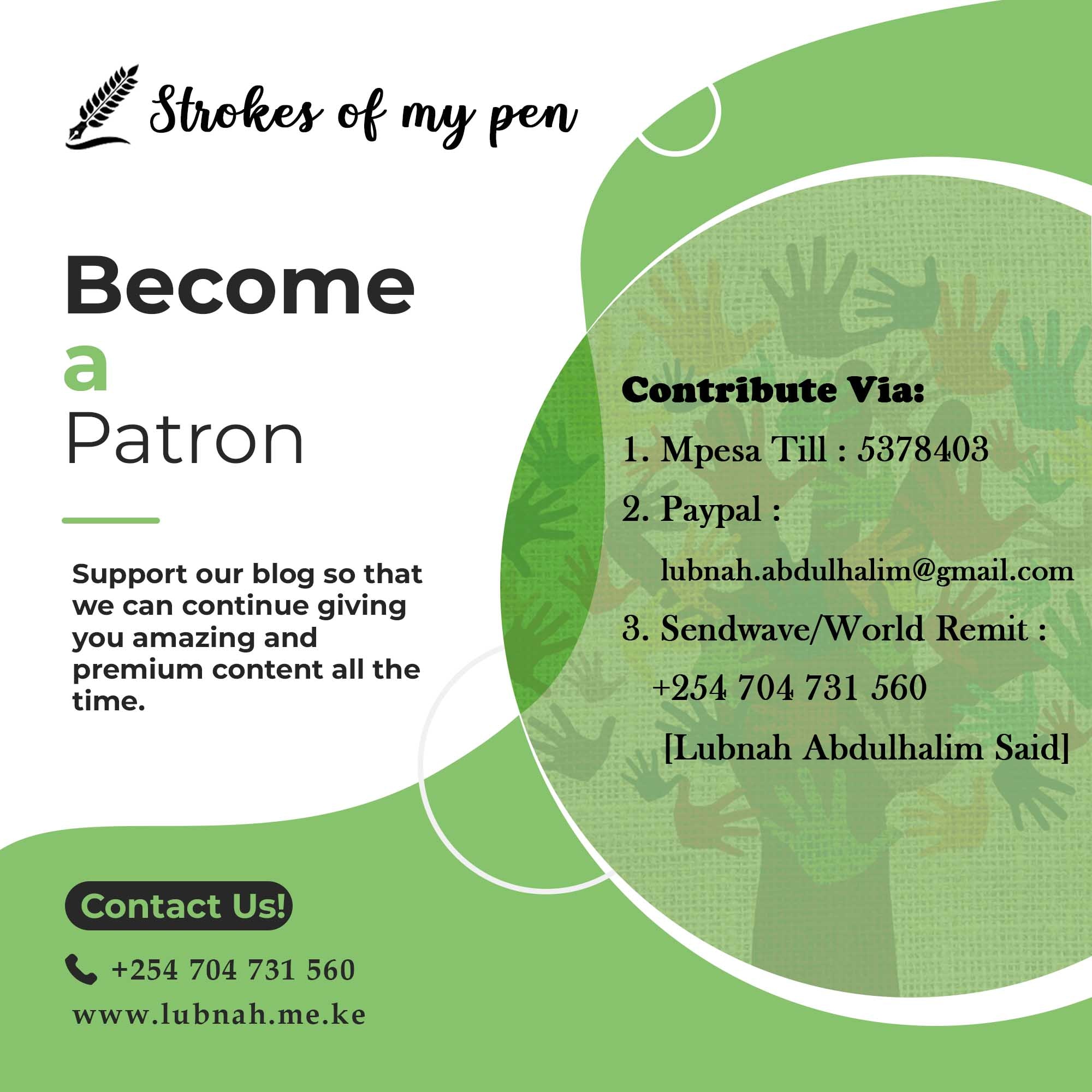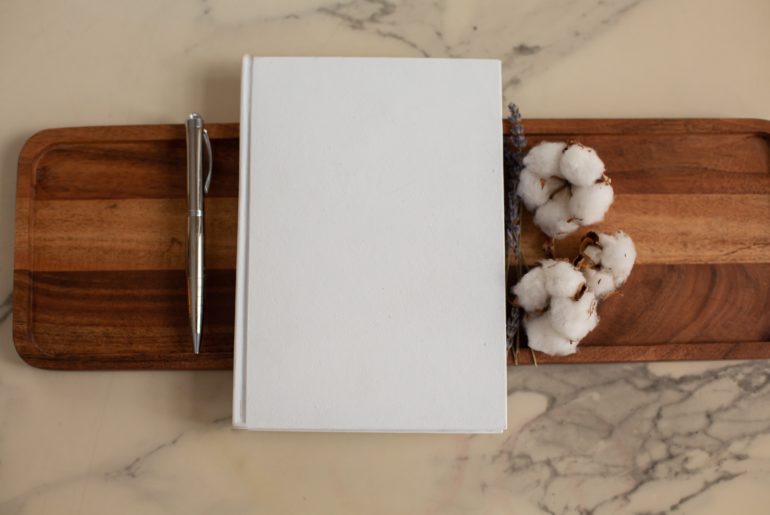Many times, across different types of relationships, we face some turmoil and challenges that may bring about animosity, chaos and intense emotions. One major cause of most relationship problems is communication. However, there’s one other issue that is critical in relationships yet remains rarely identified; our attachment styles.
Attachment is the emotional bond between an infant and parent/guardian and it is through this bond that the infant gets their primary needs met. According to renowned psychiatrist John Bowlby’s attachment theory, the relationships with our primary caregivers during our earliest years have a major and long-lasting impact on our social and intimate relationships, including connections made at workplaces. How we bonded with our parents and guardians sets the stage for how we perceive and build all our relationships thereafter.
There are four attachment styles, the last three are considered insecure:
1. Secure attachment
2. Anxious Preoccupied attachment
3. Dismissive Avoidant attachment
4. Fearful Avoidant attachment
It should be noted that parents don’t necessarily or intentionally choose these attachment styles. Most of the time, they’re unaware and it is just automatic behavioural patterns passed from one generation to another .i.e. an anxiously attached parent might have an anxiously attached child due to unhealed generational trauma and they raise their kids the same way they were. Nonetheless, other factors might also affect which attachment style a child adopts as they grow up, such as trauma, life experiences, environment, or the close relationships they have with others.
1. Anxious Preoccupied (High anxiety, Low avoidance): Also known as anxious ambivalent in children, is often associated with an inconsistent parenting pattern. The caregiver tends to give mixed signals by sometimes being responsive to the child’s needs and sometimes being misattuned or unavailable to the child. This may be very confusing for the child, make them feel unstable and regard their parents’ actions as unpredictable or unreliable. They may become very distressed when separated from their caregiver, and even when he/she returns, they continue to display anxious behaviour and do not appear comforted.
Please note that this doesn’t mean that the parents intentionally neglect the child’s needs but it could be that the caregivers didn’t meet the child’s needs in the way that they wanted. As such, they opt to throw tantrums and become clingy to get their attention. These children tend to be very sensitive and self-sacrifice to take care of others even at their own expense.
When one grows up with this style, one may have some of the following characteristics:
- Fear of rejection
- Need for constant reassurance
- Being needy/clingy
- Fear of abandonment
- Depending on a partner for validation and emotional regulation
- Codependent tendencies
- Jealous tendencies
- Low self-esteem
- Highly sensitive to criticism
- Needing approval from others
- Difficulty trusting others
- Difficulty being alone
- Feeling unworthy of love and not being good enough
- Self- critical and indecisive
- Overthinking tendencies
- May develop anxiety disorders as adults
2. Dismissive Avoidant (Low anxiety, High avoidance): This attachment style is formed when the child’s caregiver is absent or emotionally distant or busy or disinterested in their emotional needs. The child could be expected to be independent and the caregiver might also disapprove if the child shows any display of emotions. When the child is upset, their distress is regularly ignored or dismissed. Because their needs aren’t met, the child perceives that as rejection. They thus learn to detach from their feelings because they don’t trust that their caregivers will be there for them and they rarely seek comfort from parents/caregivers. So even when they’re separated from their parent they react fairly calmly and do not embrace their return.
As such a child grows up, he/she may develop some of the following:
- Super independent
- Have a hard time trusting others
- Fear of intimacy or closeness (Most of their relationships are surface level)
- Uncomfortable expressing their feelings
- Have commitment issues
- Emotionally unavailable
- Often feel self-sufficient and don’t need others
- Feel threatened by anyone who tries to get close to them
- May distance themselves or shut down during conflict
- May find relationships to be suffocating
3. Fearful Avoidant (High anxiety, High avoidance): Also known as disorganized attachment, this style is often associated with childhood trauma or abuse. Fear for their caregivers is also present. The child grows up in a chaotic, threatening or abusive environment and because the caregiver shows inconsistent and unpredictable behaviour the child starts fearing for their safety. The child might seek closeness to the caregiver but at the same time, pull themselves away from them, due to fear.
When such a child is separated from their caregiver and then the parent returns, they may act oddly, by approaching them then turning away from them or freezing or even hitting the caregiver. All this is because of the childhood trauma they’ve experienced. In short, the parent is considered a source of both comfort and fear and thus the child adopts disorganized behaviour.
A child with a disorganized attachment may grow up to have some of the following symptoms:
- Fear of rejection
- Fear of intimacy
- Inability to regulate emotions
- High levels of anxiety
- Difficulty trusting others
- Signs of both avoidant and anxious attachment styles
- In relationships, they almost always expect and wait for disappointment, hurt and rejection to come.
- Contradictory and unstable behaviours i.e. might be clingy one moment then dismissive at another.
- They both desperately crave affection and want to avoid it at all costs.
- They want to love and be loved but are afraid to let anyone in.
- Likely to develop mental disorders such as personality or mood disorders or even substance abuse and self-harm.
4. Secure Attachment style (Low avoidance, Low anxiety): A child with this attachment style grows up with reliable caregivers who were quick to soothe, comfort and meet their needs. This creates trust towards the parents. The child feels safe, seen, understood and valued. They know they can depend on their caregivers to be there for them consistently and support them to explore the world around them to attain autonomy and independence.
The child feels safe to ask for reassurance or validation without punishment from the caregivers. When such a child is separated from their parent, they become distressed but upon their return, they welcome them warmly and with positive emotions.
As adults, those with this attachment tend to have healthy relationships and positive traits such as:
- Ability to regulate emotions
- High self-esteem and confidence
- Great and effective communication skills
- Comfortable being alone
- Comfortable with closeness and mutual dependency
- Easily trusting and bonding with others
- Goal-oriented
- Show healthy and balanced behaviours in relationships
- Ability to open up and seek emotional support
- Being easy to connect with
- Ability to manage conflict well
- Strong capacity to reflect on how you are being in a relationship
Take note that attachment styles aren’t everything in relationships and can be influenced by other factors as well.
These styles are not permanent and can change over time through different experiences and variables in one’s life. For example, an individual with an insecure attachment can change to become secure when they’re in a relationship with an individual who has a secure attachment style and influences them to feel safe and calm as well. The opposite of this is also possible. Also, attachment styles are not mental disorders, even though they can make one more prone to certain disorders.
Nonetheless, we cannot undermine the impact of these styles on our relationships. Many times, people have unhealthy behavioural patterns and are unable to regulate their emotions without understanding the root cause of it all; attachment styles. These styles affect how we function, behave, think, connect with others and even feel. Inadvertently, they also affect how we raise our children and which kind of environment we provide for them. To break this dysfunctional cycle, it is important for each individual with an insecure style to actively work on changing to become secure.
How can one change that? Below is your answer.

Here are a few tips to acquire the secure attachment style:
1. Self-awareness is the first and most important step towards healing. Do some research on the topic so that you may understand the different attachment styles further and yourself better. YouTube can be a good place to start for we have many resources there concerning this topic. Personally, I love ‘The Personal Development School’ on Youtube for how they explain these matters, but the resources are so many.
Do understand that sometimes an individual could have different habits that are associated with different styles and this is because of the different experiences and traumas we face at different phases in our lives. We have several online quizzes on attachment styles that can help you in finding out which style you predominantly have. One link where you can conduct the quiz is here. They usually show you percentages of the attachment styles that you have according to your tendencies and habits. The biggest percentage shows your most predominant attachment style.
2. Once you have understood your attachment style, you should do some much-needed self-reflection and take the time to analyze your own emotions, habits, your triggers, how you deal with conflict, communicate and your interactions with other people. Pay attention to the emotional and physical sensations that come up around emotional intimacy. You could have a journal specifically for this and you could jot down what’s going on with you daily. This helps in not just understanding oneself but also gives you some relief from whatever emotions you carry with you.
3. This journey might not be easy so you must be ready to do the work however hard it might get. It is important to accept your weaknesses, unhealthy habits and the things you might need to work on. Be self-conscious about your thoughts and emotions and learn how to regulate them, soothe yourself, and positively interact with others.
4. Most of the time, we tend to attract people who will represent all the suppressed parts within us, or the parts that we wish were stronger within us or parts we’re ashamed of and wish to change. So for example, if someone is quiet and emotionally detached, they will attract a partner who is emotional and expressive. If someone is controlling and demanding, they attract a partner who is pleasing and submissive. If someone has a hard time asking for help, they attract a partner who asks for help all the time …etc.
A good example of such a case according to attachment styles is that anxious preoccupied individuals and avoidants tend to subconsciously attract one another despite the two being very opposite. The anxious one is impressed by the avoidant’s independence and mysteriousness as they wish they could depend less on others and be more self-reliant. The avoidant on the other hand is attracted to the anxious person because they provide endless love, warmth and intimacy-something they didn’t quite have while growing up.
But the problem is, the two individuals have very different needs when it comes to relationships. The anxious one wants closeness and intimacy from their partner and tends to be clingy and needy, while the avoidant one is intimidated by closeness and really values their independence and personal space. So despite their attraction, the relationship tends to become a chaotic trap of triggers and unmet needs. The two genuinely struggle to provide their partner with what they need. The avoidant feels the anxious one is too much, while the anxious one feels their avoidant partner is not enough for them. In fact, they call it the anxious-avoidant trap/dance/cycle, because the two individuals feel stuck. They have a hard time making it work but also a hard time moving away from each other. (You can read more about this here)
It is thus very very important for a couple to understand their individual attachment styles and how they could be triggering each other. It is not impossible to make such relationships work but they need a certain level of self-awareness and willingness to grow and change for the better.
The two of you must have open and effective communication about your needs, worries and concerns so that you can also support each other in your healing journey. It might get very uncomfortable, especially for the avoidants but there is no shortcut to the process. The good thing is, the outcome is totally worth it!
Side note: Many times, the partners we’re seeking have traits and behaviours like one of our parents. The reason for this is that we’re trying to find an outcome that will be different from how it was with our parent. For example, if your father was inconsistent with you, you’d subconsciously find a partner who will also have inconsistent habits. The hope here is that you’ll be able to make them grant you the stability and consistency that you lacked in your childhood and thereafter heal your childhood wound.
We subconsciously get into such relationships in an attempt to heal that part of us that is insecure about our worthiness and to prove that we’re lovable after all. And sometimes it becomes a lifetime pattern of seeking such partners.
The way to avoid this pattern of attracting people who have unappealing behaviours like your parent, is by first trying to understand what you’re trying to heal. For example, are you trying to be loved by an abusive partner? Are you trying to attain affection from an avoidant? Once you identify what your core wounds are, then you can seek what you need from people who are actually capable of giving what you need-accepting you and proving to you that you’re not too much.
5. Working with a therapist may be the best way to go about this for they will guide you on how to regulate yourself and change for the better whilst taking into consideration your unique life story and personality.
6. If it might be hard for you to work with a therapist on this, you can enrol in online courses that are specific to your attachment style and they can help you navigate all types of relationships and emotions to attain a secured attachment. There are also some attachment-style workbooks that have practical exercises to deal with your style. Among the websites that offer such courses and workbooks include https://www.attachmentproject.com/ and https://university.personaldevelopmentschool.com/ among many others. There are also courses that are specific for couples of different attachment styles-showing them how their pairing works and how to navigate their relationships in a healthy manner.
7. Do understand that sometimes parents aren’t aware of how they’re emotionally affecting their children and are simply doing their best (abusive parents are a different case here). So you can acknowledge the effect they had on you, without blaming them for it. Most times they can’t undo anything they did and it is best if we all just looked forward and focused on the healing journey.
8. Regardless of the painful experiences of your past that shaped who you are, as an adult, it is best to leave the past where it is and take full control of your life now. Healing is an intentional choice that each one of us should make. So don’t allow your trauma to permanently ruin your emotional stability and how you relate with others.
9. Start working on building closer relationships with people by listening to their needs, worries and concerns as well. You could develop a step-by-step approach on how to effectively communicate with others, how to let them in and meet their emotional needs as well.
10. Do not beat yourself up for your shortcomings and don’t try to change everything at once. Have a system/plan which takes you step by step without overwhelming yourself. Remember that this is a long process and your effort is much appreciated. Involve a close friend or partner or even a trusted family member so that they can act as your support system and also hold you accountable. Most importantly, remember that consistency is key! Don’t expect your partner or your friends to do the work for you.
By consciously working through your unhealthy patterns and triggers, you can create satisfying relationships. So don’t give up! This is your personal project-strive to take intentional steps towards healing and healthier relationships.
Sources:
Kp_counseling (on IG)
https://attachment.personaldevelopmentschool.com/
https://attachment.personaldevelopmentschool.com/
https://university.personaldevelopmentschool.com/
https://www.psychologytoday.com/us/basics/attachment
https://www.verywellmind.com/attachment-styles-2795344
https://fashionjournal.com.au/life/relationships-anxious-avoidant/
https://www.youtube.com/channel/UCHQ4lSaKRap5HyrpitrTOhQ
https://psychcentral.com/health/4-attachment-styles-in-relationships
https://www.mindbodygreen.com/articles/attachment-theory-and-the-4-attachment-styles













